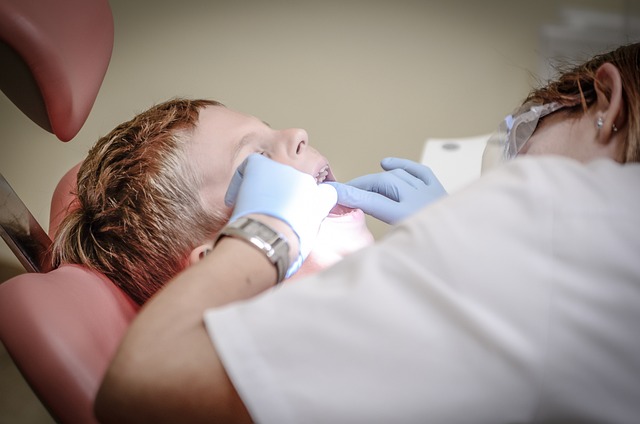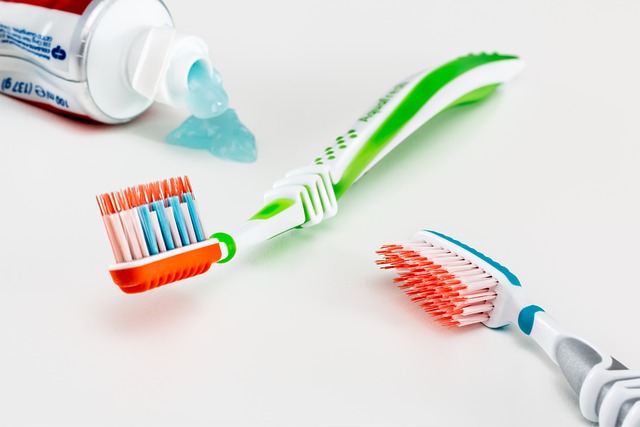Understanding Why Carbonated Drinks are Off-Limits Post Tooth Extraction
Title: Understanding Why Carbonated Drinks are Off-Limits Post Tooth Extraction
Introduction:
Greetings readers! We hope you’re doing well and staying informed about your oral health. Today, we delve into an important topic that concerns many who have recently undergone a tooth extraction: why carbonated drinks are off-limits during the healing process. As much as we might crave that refreshing fizz, it is crucial to understand the potential consequences and give ourselves a chance to heal properly. So, let’s explore the fascinating world of dentistry and uncover why carbonated beverages should be avoided during this crucial post-extraction period.
1. Protecting Your Healing Mouth: The Importance of Avoiding Carbonated Beverages After Tooth Extraction
After a tooth extraction, it’s crucial to take good care of your healing mouth. Avoiding carbonated beverages is a simple yet often overlooked aspect of the recovery process. Carbonation can have a negative impact on your healing gums and prolong your recovery time. Here’s why it’s important to steer clear of carbonated drinks:
1. Carbonation and its effects on blood clotting:
- Carbonated beverages are typically acidic, which can hinder the formation of a strong blood clot in the socket where the tooth was removed. A weak clot may increase the risk of bleeding and delays in healing.
- Bubbles in carbonated drinks can dislodge or dissolve the blood clot, resulting in a dry socket, a painful condition that can extend your recovery time and require additional treatment.
- Acidic carbonated beverages can also irritate the gums, causing discomfort and potentially leading to complications, such as infection.
2. Alternate beverage choices for a healthy recovery:
- Opt for non-carbonated, non-acidic drinks, such as water, herbal tea, or fruit-infused water, to stay hydrated without compromising your healing process.
- Additionally, beverages that are high in sugar should be avoided as they can contribute to bacterial growth and tooth decay. Drinking sugar-free options can promote a smoother recovery.
- Remember, maintaining good oral hygiene and following your dentist’s instructions are key to a successful recovery. Be mindful of what you consume to ensure optimal healing and minimize any potential complications.

2. Bubble Trouble: How Carbonated Drinks Can Hinder Your Post-Extraction Recovery Process
Are you a fan of carbonated drinks? While they may be refreshing, it’s important to be mindful of their effects on your recovery process after a tooth extraction. Carbonated beverages, such as soda and sparkling water, can hinder your post-extraction healing for several reasons.
Firstly, carbonated drinks can introduce air bubbles into your mouth, causing discomfort and even pain. When drinking from a can or bottle, the carbonation releases gas bubbles that can get trapped in the empty socket left by the extracted tooth. These bubbles can irritate the sensitive tissues and slow down the healing process. It’s best to avoid carbonated drinks for the first few days after your extraction to prevent complications and reduce discomfort.

3. Say No to Fizz: Exploring the Impact of Carbonation on Your Healing Teeth
When it comes to maintaining the health of your teeth, it’s important to pay attention to what you consume on a daily basis. One factor that can have a significant impact on your oral health is carbonation. Carbonated beverages, such as soda and sparkling water, may seem innocent, but their effects on your teeth can be quite harmful.
Firstly, carbonated drinks are highly acidic, which can erode the enamel on your teeth. This protective layer is crucial in preventing tooth decay and cavities. Regular consumption of carbonated beverages can weaken the enamel, making your teeth more susceptible to damage. Additionally, carbonation can increase the risk of acid reflux, which further exposes your teeth to destructive stomach acid.
- Over time, the erosion of enamel can cause tooth sensitivity.
- Cavities may form as the weakened enamel allows bacteria to penetrate the tooth.
- The chances of tooth discoloration and staining become higher due to the erosion of enamel.
To ensure the health and longevity of your teeth, it’s best to limit your intake of carbonated beverages. Instead, opt for non-carbonated drinks like water, herbal teas, and milk. If you do indulge in a fizzy drink, use a straw to minimize contact with your teeth and rinse your mouth with water afterward. Remember, saying no to fizz can significantly contribute to the healing and preservation of your precious teeth. Your smile will thank you!

4. The Bubbles Ban: Understanding Why Carbonated Beverages are a Big No-No After Tooth Extraction
After undergoing a tooth extraction, it is crucial to follow the dentist’s post-operative instructions to ensure proper healing and minimize discomfort. One common restriction that patients often overlook is the ban on carbonated beverages, also known as “bubbles ban.” While it may be tempting to reach for your favorite soda or sparkling water, consuming carbonated beverages can be detrimental to the healing process. Let’s explore why carbonated drinks are a big no-no after tooth extraction.
Main Reasons to Avoid Carbonated Beverages:
- Possibility of dislodging the blood clot: Carbonated beverages contain high amounts of bubbles and fizz, which can create pressure in the mouth. Drinking these beverages can cause the blood clot that forms after tooth extraction to become dislodged. This can lead to a painful condition called dry socket, delaying the healing process and requiring additional treatment.
- Increased risk of infection: When carbonated drinks come into contact with the extraction site, the bubbles can disturb the wound and introduce bacteria into the area. This can increase the risk of infection and further complicate the healing process.
- Potential for excessive swelling and discomfort: The carbonation in beverages can cause bloating and gas buildup, leading to increased swelling and discomfort after a tooth extraction. By avoiding carbonated beverages, you can help reduce post-operative swelling and discomfort, making your recovery more comfortable.
While it may be disappointing to abstain from carbonated drinks for a short period, remember that it is a small sacrifice for the sake of your oral health and a smooth recovery. Opt for alternative refreshing and non-carbonated options suggested by your dentist, such as plain water or herbal tea. These beverages will not pose any risks to your healing process and will keep you hydrated. Prioritizing your oral health today will ensure a brighter and healthier smile in the future.

5. Let the Healing Begin: Why Dentists Recommend Avoiding Carbonated Drinks Post Tooth Extraction
After a tooth extraction, it’s crucial to take proper care of the area to promote healing and prevent complications. One recommendation that dentists strongly emphasize is to avoid carbonated drinks during the recovery period. Here’s why:
1. Potential dislodging of the blood clot: Carbonated drinks, especially those with fizz, can create pressure and bubbling in your mouth when consumed. This may dislodge the blood clot that forms in the extraction site, which plays a vital role in the healing process. Dislodging the blood clot can delay healing and lead to a painful condition called dry socket. To minimize this risk, it’s best to avoid carbonated beverages altogether.
2. Chemical and acidic nature: Carbonated drinks often contain acidic ingredients, which can be harmful to the delicate tissues around the tooth socket. These acids can cause irritation, inflammation, and discomfort, making it harder for your gums to heal properly. By steering clear of carbonated drinks, you provide the necessary environment for healing and reduce the chances of complications.
6. The Science Behind the Ban: Unveiling the Reasons to Steer Clear of Carbonation After Dental Surgery
When it comes to maintaining optimal dental health, it’s important to make informed decisions post-surgery. One particular aspect that often gets overlooked is the consumption of carbonated beverages. While they may be refreshing on a hot day, these fizzy drinks can have adverse effects on your newly treated teeth and gums. Here’s why it’s best to avoid carbonation after dental surgery:
The Effects of Carbonation on Healing:
- Delay in Healing: Carbonated beverages contain high levels of acidity that can potentially disrupt the healing process. The fizziness in these drinks is a result of carbon dioxide, which combines with water to form carbonic acid. This acid can slow down the healing time of your surgical wounds, potentially leading to complications.
- Increased Sensitivity: After dental surgery, your teeth and gums may become more sensitive than usual. The carbonation in beverages can aggravate this sensitivity and cause discomfort. Opting for non-carbonated alternatives, especially during the initial recovery phase, can help minimize any potential discomfort.
- Possible Irritation: The bubbles in carbonated drinks exert pressure on your teeth, gums, and any surgical sites. This pressure can potentially lead to irritation and inflammation. Avoiding carbonation can provide a gentler environment for your healing tissues, reducing the risk of irritation.
7. Bubble-Free Recovery: How Carbonated Beverages Can Prolong Your Healing Time
When it comes to recovering from an injury or surgery, we all want the process to be as quick and painless as possible. Surprisingly, carbonated beverages can play a role in prolonging your healing time by creating bubbles in your body. Here’s how these fizzy drinks can hinder your recovery:
- Increased gas production: Carbonated beverages are filled with carbon dioxide gas, which can lead to excessive gas production in your digestive system. This extra gas can cause discomfort and bloating, making it harder for your body to focus on healing.
- Reduced nutrient absorption: The bubbles in carbonated drinks can interfere with the absorption of key nutrients from your food. This can lead to deficiencies in vital vitamins and minerals that are essential for the healing process.
- Delayed wound healing: Carbonated beverages have been known to increase the acidity levels in your body. This acidic environment can slow down wound healing and even lead to complications such as infections.
While the occasional fizzy drink may not have a significant impact on your recovery, it’s best to avoid carbonated beverages during the healing process. Opt for still water or herbal teas to stay hydrated and support your body’s healing mechanisms. Remember, small lifestyle changes can make a big difference in your overall well-being!
8. Discover the Hidden Dangers: Why Carbonated Drinks Can Compromise Your Post-Extraction Healing
After a tooth extraction, it’s essential to take proper care of your mouth to ensure a smooth healing process. One aspect often overlooked is the impact of carbonated drinks on your recovery. While they may be refreshing, fizzy beverages can actually hinder the healing process and lead to complications. Here are a few reasons why you should avoid carbonated drinks during your post-extraction healing period:
- Delayed Blood Clot Formation: Consuming carbonated drinks can disrupt the formation of a blood clot, which is crucial for the healing process. The carbonation and bubbles in these drinks can cause the blood clot to dislodge, leading to a condition called dry socket, which can be extremely uncomfortable.
- Degradation of Gum Tissues: The acidic nature of carbonated drinks can erode gum tissues, especially around the extraction site. This can slow down the healing process and make it easier for bacteria to penetrate the area, increasing the risk of infection.
- Increased Swelling and Discomfort: Carbonated drinks often contain high levels of sugar and caffeine, which can contribute to inflammation and result in increased swelling and discomfort following an extraction. Opting for healthier beverage options without these ingredients can significantly improve your healing experience.
To ensure a speedy and successful recovery, it is best to avoid carbonated drinks until you are fully healed. Instead, drink plenty of water to stay hydrated and help flush out any debris. Opt for soothing, non-acidic beverages like herbal teas or natural fruit juices without added sugars. Remember, taking proper care during your healing period will promote optimal oral health, allowing you to get back to your normal routine as soon as possible.
9. Smooth Sips Only: Exploring the Gentle Alternatives to Carbonated Beverages During Dental Recovery
When you’re recovering from dental procedures, it’s important to be mindful of what you consume to ensure a smooth and hassle-free healing process. Carbonated beverages tend to be quite harsh on the teeth, so it’s best to explore gentle alternatives that won’t hinder your recovery. Here are some delightful options to sip on:
- Herbal Teas: Warm herbal teas like chamomile, peppermint, or ginger can provide soothing relief and help reduce inflammation in the mouth.
- Fruit Infused Water: Infusing water with slices of your favorite fruits, such as strawberries, citrus, or cucumber, adds a refreshing touch without any carbonation.
- Vitamin-Rich Smoothies: Blend together a variety of fruits and vegetables for a nutrient-packed concoction that’s easy on the teeth. Try combinations like banana and spinach, mango and carrot, or blueberry and kale.
Additionally, while it’s essential to steer clear of carbonation during dental recovery, you should also avoid acidic beverages like citrus juices, as they can irritate the mouth. Opt for beverages that are mild, non-acidic, and hydrating to promote healing. Remember, a smooth sip can lead to a smooth recovery!
10. The Road to a Speedy Recovery: How Making Smart Drink Choices After Tooth Extraction Makes a Difference
After undergoing a tooth extraction, it’s crucial to make smart choices when it comes to your beverage selection. What you drink can significantly impact your recovery time and overall healing process. By opting for the right liquids, you can promote healing, avoid complications, and ensure a speedy recovery. Let’s explore some smart drink choices that can make a difference:
1. Water: When it comes to promoting healing, water is your best friend. It helps keep your body hydrated, stimulates saliva production, and prevents dryness or irritation in the mouth. Aim to drink at least eight glasses of water daily to flush out potential harmful bacteria and keep your tissues moist.
2. Herbal Tea: Sipping on a cup of warm herbal tea can provide soothing relief after tooth extraction. Opt for non-caffeinated options such as chamomile or peppermint, which have anti-inflammatory properties and can help reduce swelling or discomfort. However, avoid using a straw while enjoying your tea, as this can lead to complications like dry socket.
Frequently Asked Questions
Q: Why are carbonated drinks off-limits after a tooth extraction?
A: Carbonated drinks are off-limits after a tooth extraction because they can interfere with the healing process and potentially cause complications.
Q: How do carbonated drinks hinder the healing process?
A: Carbonated drinks, such as soda or sparkling water, contain high levels of carbonic acid, which can irritate the delicate tissues in the socket and delay the healing of the extraction site.
Q: Are there any specific risks associated with consuming carbonated drinks post tooth extraction?
A: Yes, consuming carbonated drinks can increase the risk of developing a condition called dry socket. Dry socket occurs when the blood clot that forms in the socket after the extraction is dislodged or dissolves, leaving the underlying nerves and bone exposed. This condition can cause severe pain and may require additional treatment from your dentist.
Q: Can I consume carbonated drinks after the initial healing period?
A: While it is generally safe to consume carbonated drinks after the initial healing period (usually the first few days), it is still advisable to avoid them for a little longer. These beverages can still be mildly irritating to the healing tissues, and it’s best to allow your gums and socket to fully recover before reintroducing carbonated drinks into your diet.
Q: What are some alternative drinks I can enjoy during the healing process?
A: There are plenty of alternative drink options that are safe and can be enjoyed after a tooth extraction. Opt for non-carbonated beverages like still water, herbal tea, fruit juice (without added sugar), or smoothies. These choices will not only keep you hydrated but also aid in the healing process.
Q: How long should I avoid carbonated drinks after a tooth extraction?
A: It is recommended to avoid carbonated drinks for at least one to two weeks after a tooth extraction, or until your dentist gives you the go-ahead to reintroduce them into your diet. However, it’s always best to consult with your dentist for specific instructions based on your individual healing progress.
Q: Are all carbonated beverages equally harmful to the healing process?
A: While all carbonated beverages contain carbonic acid, some can be more harmful than others. Drinks with high levels of acidity, like soft drinks or energy drinks, are typically more detrimental to the healing process. However, even low-acid options, such as sparkling water, can still potentially irritate the extraction site. It is best to avoid all forms of carbonation during the initial healing period.
Q: What other foods or drinks should I avoid after a tooth extraction?
A: In addition to carbonated drinks, it is best to avoid consuming hot beverages, alcohol, spicy foods, and foods that require excessive chewing. These items can also irritate the extraction site or interfere with the healing process. Opt for soft foods, such as soups, mashed potatoes, yogurt, and smoothies, for the first few days after the extraction.
Q: Can I resume my normal diet once my socket has fully healed?
A: Yes, once the socket has fully healed, you should be able to gradually resume your normal diet without major restrictions. However, it is still important to maintain good oral hygiene practices and consume a balanced diet that promotes overall oral health. Remember to consult your dentist if you have any concerns or specific dietary restrictions.
Conclusion
In conclusion, if you’ve recently undergone a tooth extraction, it’s crucial to understand why carbonated drinks should be avoided during the recovery period. While these fizzy beverages may be incredibly tempting, they can pose significant risks to your oral health and hinder the healing process. The combination of high sugar content, acidic pH levels, and the carbonation itself can lead to potential complications like infection, dry socket, or delayed healing.
By opting for alternative beverages like still water, herbal tea, or natural fruit juices, you can ensure a smoother and quicker recovery. Remember, this is just a temporary sacrifice for the long-term benefits of a healthy, pain-free mouth. Your dentist or oral surgeon has your best interest at heart, and following their guidance will prevent any setbacks in your healing journey.
It’s essential to prioritize your oral health by diligently following post-extraction instructions and maintaining a well-balanced diet. Nutrient-rich foods can bolster your immune system, promote tissue regeneration, and expedite the healing process. If you experience any discomfort, pain, or notice any unusual symptoms, don’t hesitate to reach out to your dentist or oral surgeon for professional guidance.
Remember, the path to a healthy smile lies in making informed choices. By understanding why carbonated drinks are off-limits post tooth extraction, you can make the necessary adjustments to your lifestyle and ensure a smooth and successful recovery. It may take a little patience, but the reward of a fully restored and pain-free mouth will certainly be worth it.
So, resist the fizzy temptations and make wise choices for your oral health. Your teeth will thank you in the long run!






